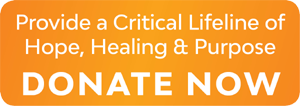Every day there seems to be a new feature story about concussion in the media. This is important news because concussions, a type of traumatic brain injury, happen frequently and can have lasting effects. Despite often being associated with professional and youth sports, a concussion can happen to anyone at any age from a blow or jolt to the head. Causes include falls, motor vehicle and recreation accidents, whiplash, and even seemingly minor bumps to the head, like bumping into a cabinet door.
Concussion has become an important area of research to improve understanding of its short and long-term side effects and to establish effective treatment protocols.
In a recent San Francisco Chronicle article, renowned neurosurgeon and UCSF Professor, Dr. Geoffrey Manley, shared his study findings that too many concussion patients do not receive follow-up care even when they experience ongoing post-concussive symptoms.
Many health care professionals believe concussion patients don’t need or cannot benefit from subsequent visits and treatment. Dr. Manley’s study, published in the Journal of the American Medical Association Network Open, found the opposite to be true. “This is a public health crisis that is being overlooked,” Manley said in an interview.
In fact, half of concussion patients are discharged without being warned about possible follow-up symptoms, red flags and dangers. Only 40% of the patients in Manley’s study saw a doctor or other medical provider within three months of being injured.
Dr. Manley drew parallels between traumatic brain injuries and other diseases, noting that it is important to think of a head injury as an ongoing condition rather than an isolated event.
“If you have a heart attack, you get great care,” he said. “A doctor will follow up with you. With traumatic head injuries, we have a whole bunch of people out there that when we looked at those that aren’t being seen, they needed to be seen. We have got to do a better job.”

You help people not only survive, but thrive!
As a Schurig Center supporter, you play a critical role in filling the gaps in follow-up care for people living with the effects of a concussion. You provide therapeutic and support services designed to help people improve their abilities and transition from the hospital to community living.
Your generosity helps hundreds of people each year achieve their best quality of life by providing:
A restorative community
That provides a vitally important bridge between medical intervention and survivor independence.
Customized recovery plans that offer survivors in crisis a ray of hope.
When doctors don’t have time to recommend therapists and insurance won’t pay for transitional services, you give them a place to turn.
Brain injury expertise and education
That is helping to change the future of brain injury recovery.
It’s not enough to save a life.
Everyone deserves to have a life.
Thanks to you, survivors and their families have a place to turn to get the support they need to build meaningful lives after a brain injury, from an accident, concussion or stroke. THANK YOU!




